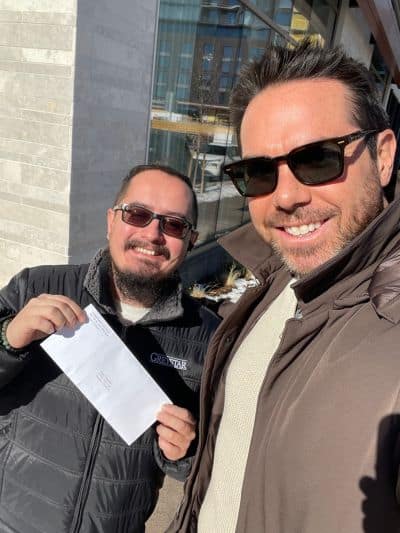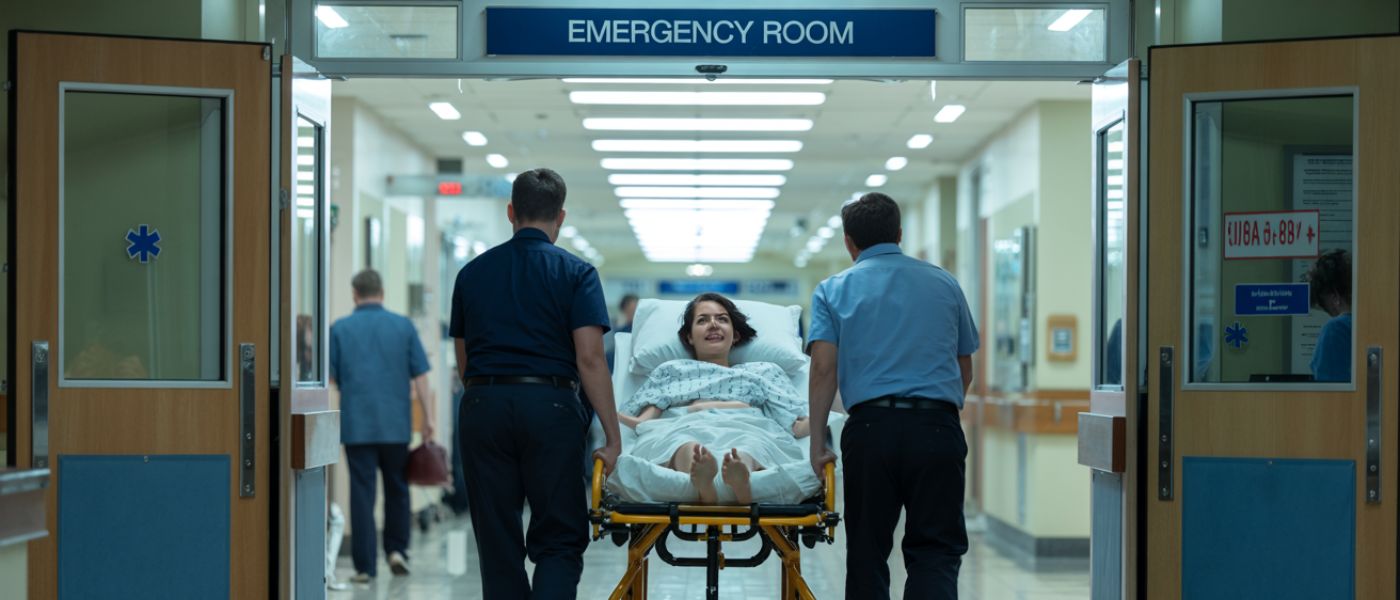Lawyer for Hospital Bills
How Legal Representation Reduces Out-of-Pocket Costs After an Accident
An ambulance ride and a few hours in the ER can feel like lifesavers until the bill arrives. According to Kaiser Family Foundation data, the average emergency visit after a car crash now tops $5,200 before imaging or surgery. Add CT scans, trauma-team fees, and a two-day stay, and you’re staring at $45,000 to $120,000 in charges you never budgeted for. Health insurers often refuse to pay list prices, leaving you wedged between aggressive hospital billers and a liability claim still months from resolution. A skilled lawyer for hospital bills can keep those charges from swallowing your settlements, sometimes eliminating them. Here’s how.

The Hidden Cost of Free Emergency Care
Hospitals don’t bill like normal merchants. They consult a secret price list called a Chargemaster. After a crash, they also apply special trauma activation codes that multiply those sticker prices. Under this system, a single bag of IV saline, $12 at retail, lists for $389. A CT scan Medicare values at $365 frequently posts north of $5,000.
Charges climb further because auto insurers lack pre-negotiated rates. If your health plan delays approval, the entire stay is billed out-of-network, triggering the hospital’s highest multiplier. Billing clocks start the moment you’re triaged, and state collection laws let facilities send unpaid balances to third-party agencies in as little as 90 days. Those agencies report to Experian and Equifax, putting your credit score at risk long before the liability carrier cuts a check. The result: an avalanche of interest, late fees, and stress precisely when rest and recovery should be your only job.

Medical Bill Subrogation & Hospital Liens Explained
What Is Medical Bill Subrogation?
When you use health insurance after a wreck, the plan doesn’t simply pay and forget. Under a medical bill subrogation doctrine, the insurer steps into your shoes and claims reimbursement from any party that caused your injuries. Consider it a temporary loan: BlueCross covers the hospital, then demands repayment from your personal injury settlement. Most plans, especially those governed by ERISA, reserve the right to recoup every dollar, even if you were only partially made whole.
In practical terms, a $30,000 hospital invoice paid at the insurer’s discounted rate of $9,000 can still generate a $30,000 lien against your settlement. The spread flows back to the health plan, not to you, unless someone challenges the math.
How Hospital Liens Work (and Why They Matter)
Unlike subrogation, a hospital lien comes directly from the provider. Many states, including Texas, Georgia, and Florida, let facilities file a notice in county records within 72 hours of discharge. Once recorded, the lien attaches to your accident claim and must be satisfied before you receive a dime. Hospitals may pursue full list price, even when private insurance would have slashed the balance by 60 percent or more.
Priority rules differ by state: In Illinois, a hospital may take no more than 40 percent of your net settlement; in Arizona, the cap equals your total unpaid charges. However, missing a filing deadline or recording error voids the lien, something a sharp attorney never overlooks. Subrogation and liens are potent tools, but they’re not unbeatable.

How the Right Lawyer for Hospital Bills Safeguards Your Settlement
Challenging the Paperwork
Every lien or subrogation claim lives or dies on documentation. Your attorney demands the itemized bill, chain-of-payment records, and proof of timely filing. Hospitals often miss statutory deadlines or bill the wrong carrier, mistakes that can erase their entire claim. Attorneys also verify that charges align with customary regional rates and that duplicate CPT codes haven’t been stacked. If the facility can’t justify its numbers, leverage shifts instantly to the patient’s side.
Deploying Powerful Legal Defenses
The law supplies several shields. The made-whole doctrine holds that a lienholder cannot collect until you are fully compensated for medical costs, lost wages, and pain and suffering. Comparative-fault statutes can also shrink hospital claims in proportion to any negligence assigned to you. When ERISA governs, federal limits kick in: the plan may claim only the portion of the recovery earmarked for medical expenses, not the entire personal injury settlement. A seasoned accident and injury attorney weaves these defenses together, shrinking or occasionally eliminating the lien before you ever sign the settlement release.

Proven Negotiation Tactics to Reduce Medical Bills After an Accident
Securing Bulk Billing Discounts
Hospitals negotiate volume deals with insurers daily, and attorneys leverage the same concept for injured clients. By bundling multiple charges, ER visit, imaging, and surgery into a single settlement offer, we invite the provider to accept a global discount. The pitch is simple: take 35 to 45 cents on the dollar now, or gamble on costly litigation and uncertain collection later. Hospitals often agree because collection agencies typically recover only 15 cents on the dollar.
Using Hardship Arguments & Future-Care Allocations
When a hospital resists standard discounts, hardship provisions hidden in its financial-assistance policy can create new leverage. We document your lost wages, temporary disability, and household expenses, then present a hardship package that triggers additional write-offs, sometimes up to 100 percent for low-income clients. If future surgeries or therapy are anticipated, attorneys allocate a slice of the personal injury settlement for upcoming care. Providers gain assurance of payment for tomorrow’s services, and you avoid paying today’s inflated rate. These tactics routinely shave five- and six-figure sums off a single hospital bill.
What Savings Look Like: Using Hypothetical Numbers
A Tale of Two Bills
- Jane D. was airlifted after a rollover crash. The initial invoice was $182,450, but an audit uncovered double-billed trauma fees and time-barred charges. The final payment was $42,300, a 77 percent reduction that added $140,000 to Jane’s pocket.
- John D. fractured his pelvis in a motorcycle collision. The hospital filed a lien for $89,600. Leveraging state lien-cap statutes and a hardship application, the case was settled for $24,000.

Exactly When to Bring in an Accident and Injury Attorney
The best time to hire counsel is immediately after emergency care, before any repayment agreement is signed, and before you endorse an insurance check. Early involvement lets your lawyer contest improper charges, block premature collections, and preserve evidence for the overall accident claim.
Most accident attorneys near you, including our firm, work on a contingency fee: we are paid a percentage of the final recovery, and fees apply only if we win. Crucially, hospital-bill negotiation is folded into that percentage, so you gain lien-reduction expertise without extra cost. The metric that matters is the net-to-client amount you receive after medical bills and fees. Effective legal representation consistently raises that number.

Quick Answers to Common Hospital-Bill Questions
Can the hospital take my personal injury settlement?
Hospitals cannot seize your check outright, but a properly filed lien gives them priority on a portion of it. An attorney can challenge the lien’s validity, negotiate the balance, or invoke state caps to limit the payout.
Will Medicaid or Medicare still seek repayment?
Yes. Federal law requires both programs to pursue reimbursement, but they offer statutory reductions and hardship waivers. Experienced lawyers routinely cut government paybacks by 30 to 40 percent.
What if I already set up a payment plan?
A payment plan does not waive your negotiation rights. Your lawyer can renegotiate the balance, pause collections, or fold prior payments into a revised settlement.

Keep More of Your Settlement in Your Pocket
Hospital liens and subrogation claims can devour your hard-won settlement, but they are neither fixed nor inevitable. By auditing bills, invoking statutory defenses, and negotiating from a position of legal strength, a seasoned lawyer for hospital bills can cut medical costs dramatically, often adding tens of thousands of dollars to your net recovery. If you’re staring at a mountain of accident medical debt, a no-fee consultation could be the difference between starting over in the red and moving forward with financial peace of mind.




